When a stroke in 2019 left Laura Lumsden’s dad James unable to look after his Turriff farm, the family raced to help.
Laura, an NHS nurse and health visitor, spent her days off shouldering the workload alongside her sisters.
Neighbours pitched in too, the tight-knit farming community coming together in an emergency to help one of their own.
Still, Laura remembers her dad’s stroke as an extremely difficult time.
“It’s not even the effect on the person that it happens to,” she says. “It is the effect on the family as well. It causes so much worry.”
So when the opportunity arose to take over a Scottish farming charity’s health drive in Thainstone, not far from James’ farm, Laura jumped at the chance.
Her dad made a full recovery and is now back running his mixed-arable farm. But she knew there were too many farming families that are one health mishap away from near disaster.
This was a chance to do something about it.
“I just felt that it was really vital service,” she says.
What does the Health Hut at Thainstone do for farmers?
Laura was appointed head of Health Hut at Thainstone Centre near Inverurie in April.
The hut — more of a stall than an actual hut — opens once a month at Thainstone’s agricultural mart, usually when one of the bigger sales is on.
Part health MOT, part community outreach programme, the Thainstone project is one piece of a Scotland-wide network of Health Huts supported by farming charity RSABI and farming group ANM that tackle poor health among agricultural workers.
In doing so, the Health Huts have their work cut out.
Why are farmers so at risk of bad health?
Studies frequently put farmers and agricultural workers near the bottom of the pile when it comes to bad health.
Whether its physical issues such as strokes and heart attacks or because of the worryingly high incidence of suicides in the sector – three a week, according to the latest figures — farmers are among the sickest workers in the country.
A survey by UK farming charity RABI in 2021 found that more than half of people in the farming community experience pain and discomfort and one in four have mobility problems.
More than one in five have difficulty undertaking routine tasks because of their health issues.
On top of that, farming is also officially the UK’s most dangerous profession. A total of 35 people were accidentally killed on British farms during 2023-24, including two children.
A blood pressure shock at the Royal Highland Show
As a farmer’s daughter and nurse in the Banff and Buchan area for the past 12 years, none of this is news to Laura.
But since starting at the Health Hut, the scale of the problem has been brought into sharp focus.
In June, she manned the Health Hut stall at the Royal Highland Show in Edinburgh carrying out free blood pressure checks.
Though only 16% of the women who were checked had high blood pressure – compared to a national average of just under a third — a whopping 84% of the men were in the danger zone.
“The people that were coming up were not old; it’s definitely a lifestyle thing,” says Laura, who lays some of the blame on the farming community’s traditionally blunt attitude to health.
“They might have symptoms that have gone on for a while but they just put it on the backburner and think, oh, I’ll be fine, I’ll leave it till I’m less busy.
“They would rather be seeing that their livestock is fine, be getting on with other jobs and not prioritise what’s going on with themselves.”
The dangers of poor mental health among farmers
Another silent killer among farmers is mental health.
The job combines many of the triggers associated with stress and anxiety — everything from being a solitary profession to the often huge financial pressures on farms.
The high suicide figures are just the tip of the iceberg; the 2021 RABI survey found that more than a third of the farming community are probably or possibly depressed.
Laura sees it partly as a communication problem.
“No one would have spoken about [mental health],” she says of the farming community she grew up in. “But if people opened up and realised that, actually, everyone does struggle now and again and that it’s normal, then the easier it would be.”
What projects like the Health Hut are doing to improve conditions
There is hope, however. Laura believes the younger generation are more open to talking about mental health.
Meanwhile, farming charities such as RSABI are working hard to normalise conversations in farming that discuss topics that may previously have been side-stepped.
“By improving people’s understanding of suicide — and it’s a very complex subject — we will be able to save lives,” says RSABI chief executive Carol McLaren, who helps spearhead the charity’s ongoing Keep Talking campaign.
“Even using that word comfortably, and knowing about things like suicide safety plans, and just knowing how to respond when you think someone might be thinking along those lines.”
Why the recent rains could spell disaster for some farms
Encouraging people to talk is a major role of the Health Huts.
At Thainstone mart, Laura has access to a private room where anyone can come for a chat — all in complete confidence, of course.
It is a room that Laura has made use of several times.
Issues raised so far include concerns over succession plans — a huge source of stress for older farmers — as well as financial pressures, which could reach critical levels this year because of the weather chaos.
Recent heavy rains threaten to wash out harvests, while they have also disrupted the important calving and lambing seasons.
Following an equally wet autumn and winter, some farms are on a financial knife edge.
“It’s a domino effect,” says Carol McLaren, the RSABI chief executive.
“People have used more straw this winter, for example, for bedding animals because it’s so wet. And then the price of straw goes up because demand is high.
“And if you can’t get your crops into the ground, well, that’s potentially a disaster.”
Health Hut on tour around north-east shows
Despite the challenges for farming, Laura loves working with The Health Hut, which she currently balances with looking after her first child, who was born last September.
Right now, she’s in the thick of the north-east’s many agricultural summer shows.
Last weekend she was at New Deer and over the next few months will crisscross the north-east bringing the Health Hut stall to Black Isle Show on August 1; Turriff Show on August 4 and 5; Grantown Show on August 8; and Keith Show on August 10.
“It’s really fulfilling, knowing that you are making a difference to farmers and to the community as a whole,” she says.
It’s a community she’s still deeply involved with.
Twice a week, she drops into the family farm to help out with various odd jobs. She also gets stuck in during lambing season, one of the most important dates in the farming calendar.
“I’m so lucky to be able to combine my two passions of farming and health,” she says. “And I love being out on the farm. It’s where I feel most at home.”
The Thainstone Health Hut is at Thainstone Centre near Inverurie. No appointment is needed.
If you or someone you know is struggling, the Samaritans have a free helpline that can be accessed 24/7 by calling 116 123, or you can email jo@samaritans.org
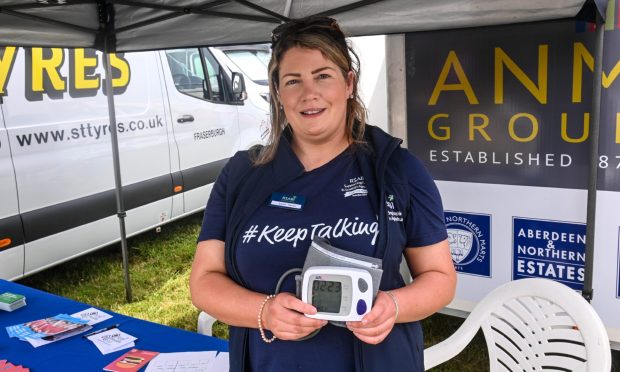
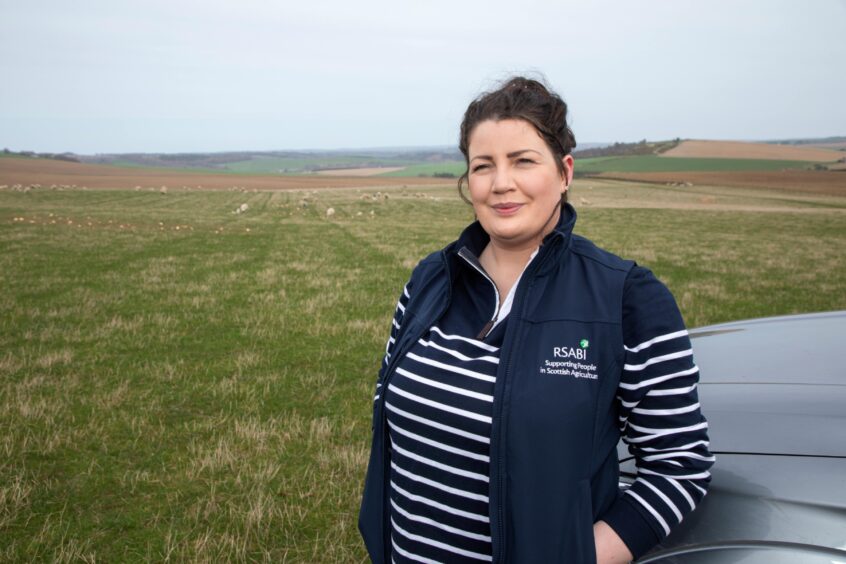
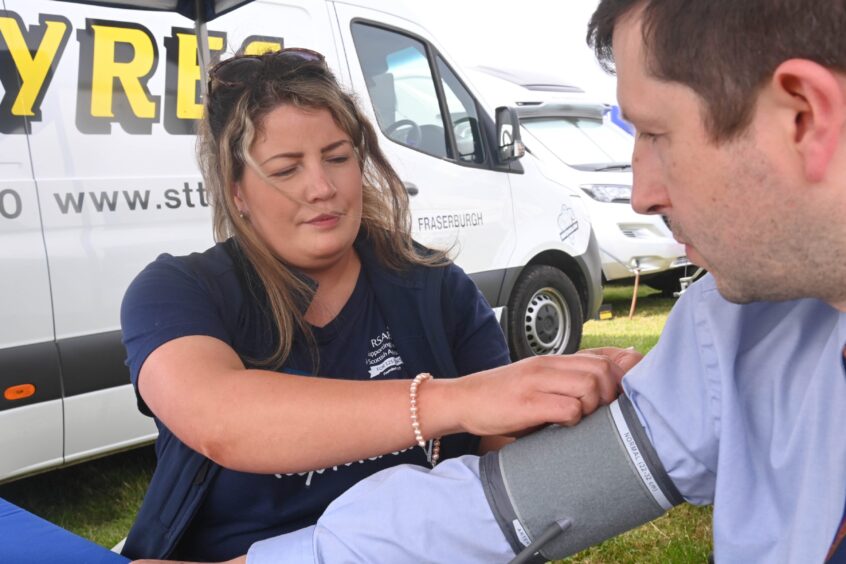
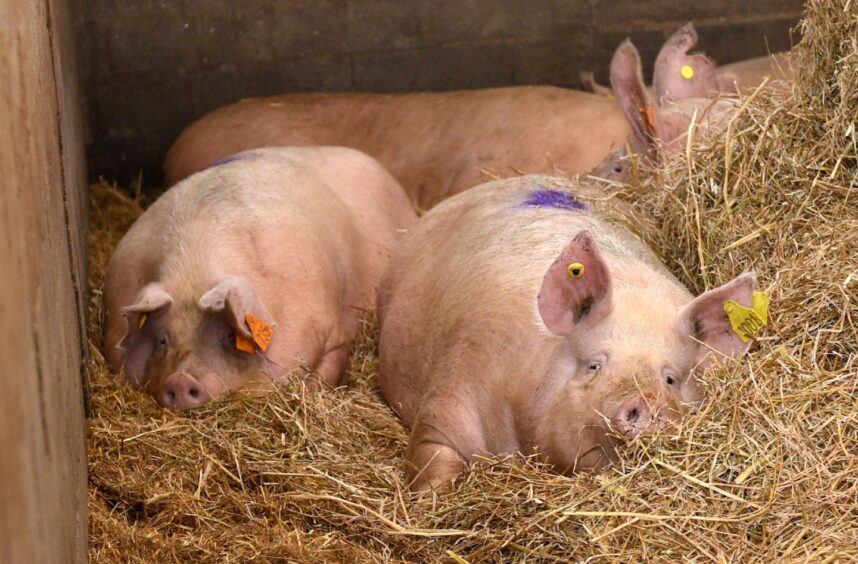
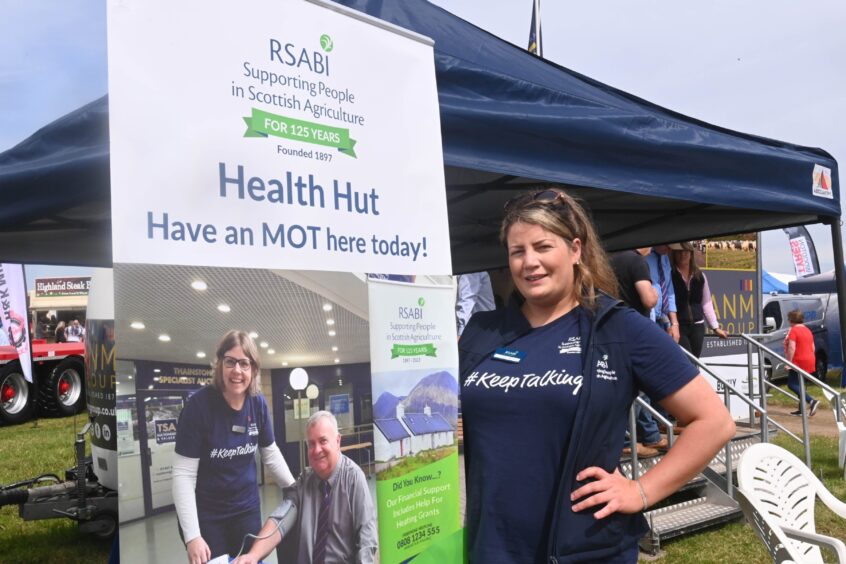
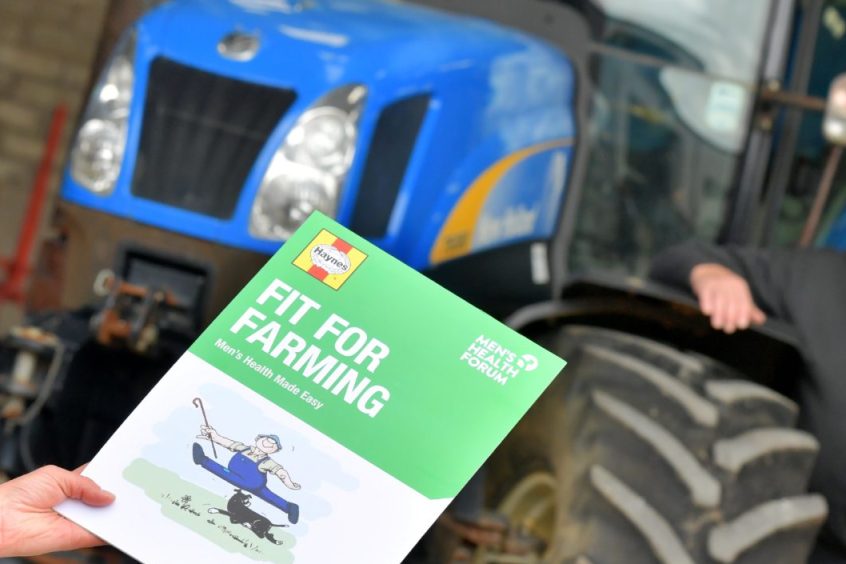
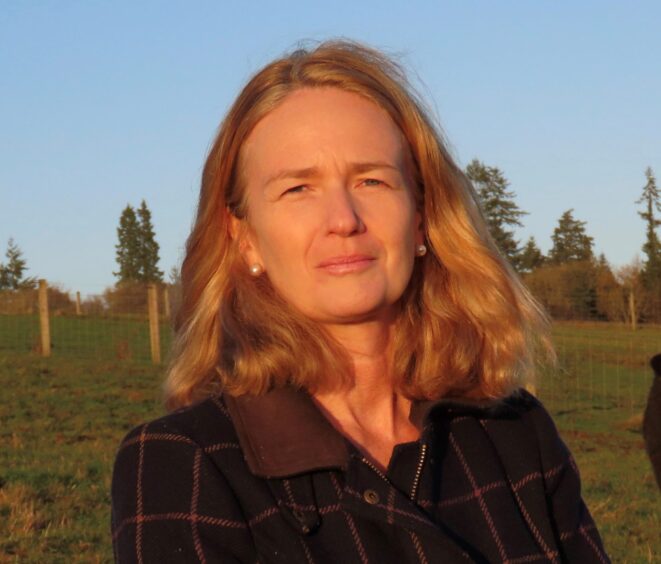
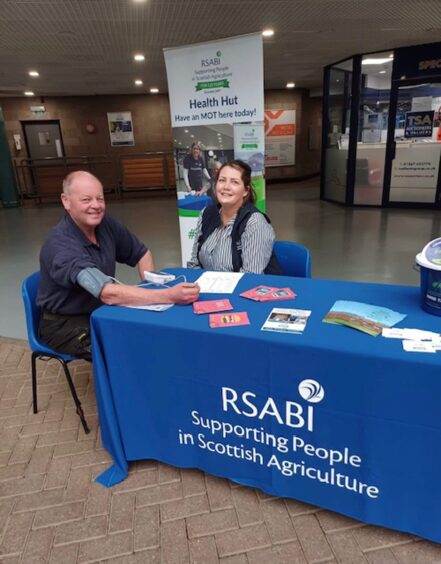
Conversation